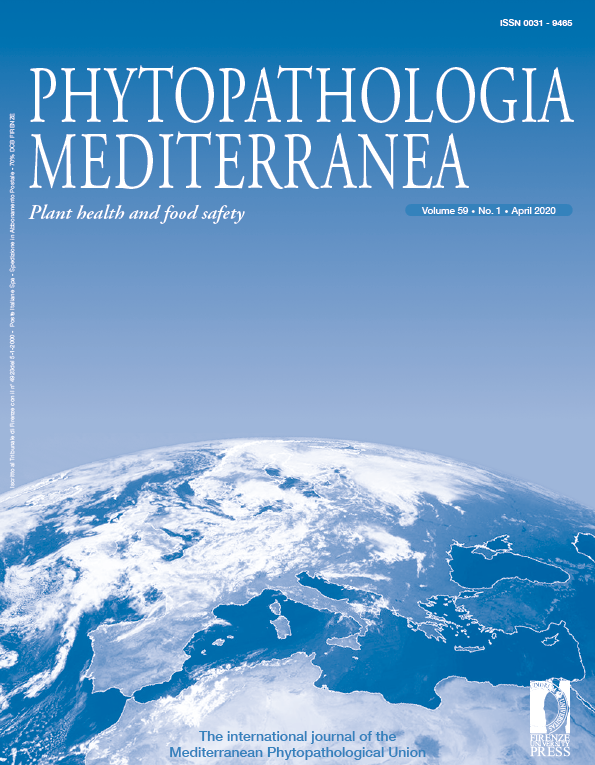Published 2020-03-13
Keywords
- Grapevine trunk disease fungi,
- Botryosphaeria dieback,
- plant-pathogen interaction
How to Cite
Funding data
-
Consejo Nacional de Ciencia y Tecnología
Grant numbers 231117
Abstract
Grapevine trunk diseases (GTD) are important threats to long-term longevity, productivity, and profitability in all grape production systems. Botryosphaeria dieback is caused by at least 32 Botryosphaeriaceae fungi. The main symptoms of this disease on grapevines are wedge-shaped cankers in the trunks, general decline and eventually death of affected plants. Pathogens from this family have broad host ranges and varying virulence. This study aimed to compare, and gain some insight into how, Lasiodiplodia gilanensis, Diplodia seriata, and D. corticola colonize grapevine tissues. In vitro studies using pycnidiospores as inoculum, showed that the presence of grapevine wood affected spore germination, hyphal growth and branching, and biomass production, especially in L. gilanensis. In planta, microscopy revealed the use of xylem vessels as the preferred sites of pathogen entry, and differences in growth and hyphal branching among species. Lasiodiplodia gilanensis produced cellulases at the beginning of the pathogen/host interaction to degrade plant tissues and invade parenchymal tissue, while D. seriata and D. corticola grew endophytically in the first stages of grapevine colonization.







